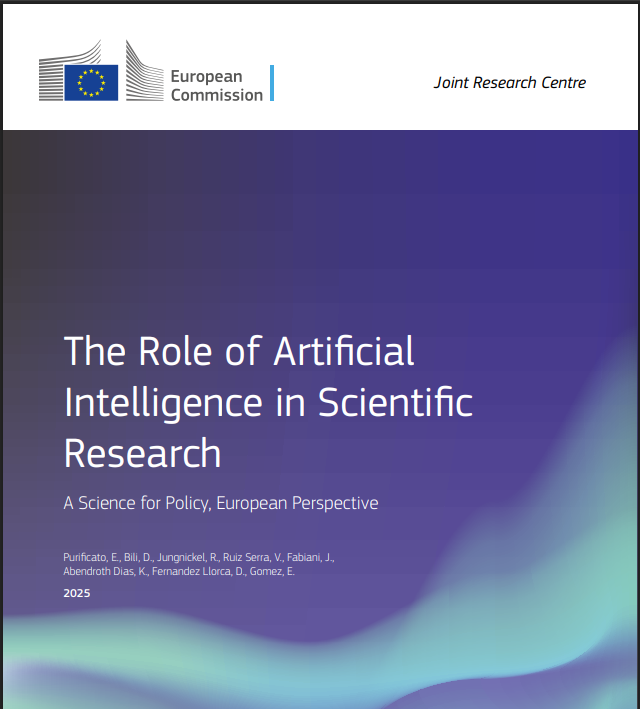The Role of Artificial Intelligence in Scientific Research: A European Perspective

Published on: 04/11/2025
The European Commission has introduced the European Strategy for Artificial Intelligence in Science to strengthen Europe’s research excellence and innovation while ensuring that AI adoption remains ethical, inclusive, and aligned with European values. The accompanying Joint Research Centre (JRC) report, “The Role of Artificial Intelligence in Scientific Research,” provides evidence-based insights to help policymakers and researchers maximize AI’s benefits and address emerging challenges.
AI is rapidly evolving from a passive analytical tool into an active co-scientist, supporting researchers throughout the scientific process. It accelerates literature reviews, identifies knowledge gaps, generates hypotheses, and even designs and optimizes experiments in real time. Breakthroughs such as AlphaFold’s success in predicting protein structures and AI-driven discoveries in archaeology and materials science highlight how the technology is expanding the boundaries of research and driving innovation across disciplines.
To harness these opportunities, the European Commission identifies three key priorities: promoting open science through accessible data and infrastructures; strengthening computational capacity, including equitable access to High-Performance Computing (HPC); and fostering multidisciplinary talent that bridges scientific expertise with data and engineering skills. Together, these actions will ensure that Europe’s research community can fully benefit from AI-driven progress.
At the same time, responsible AI use demands transparency, accountability, and human oversight to address risks such as algorithmic bias, data “hallucinations,” and the reliability of AI-generated content. Through this new strategy, the EU aims to make AI tools and infrastructure more accessible and to support research in strategic areas such as climate change, health, and clean technologies — ensuring that AI strengthens Europe’s research excellence and innovation while upholding the principles of openness, ethics, and scientific integrity.
Download the full report here: The Role of Artificial Intelligence in Scientific Research

